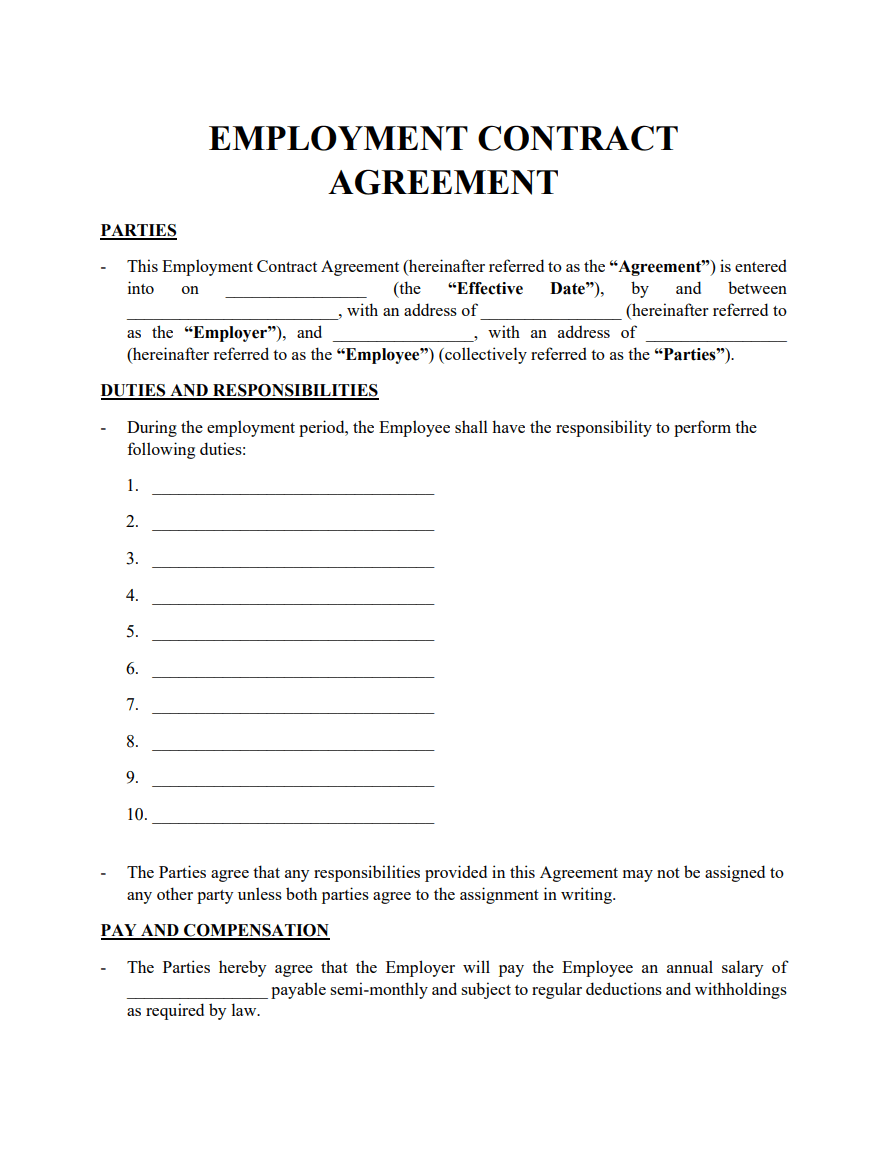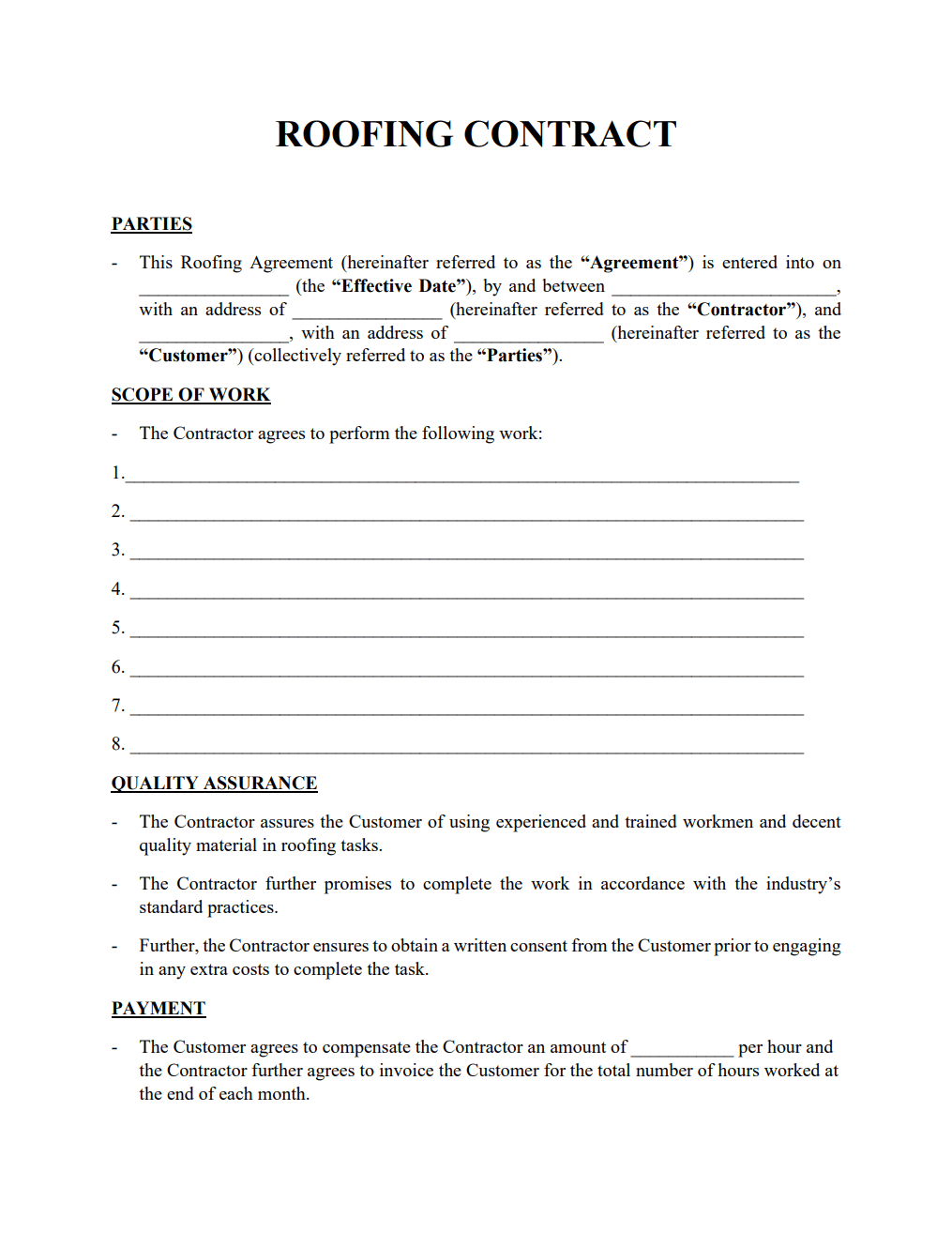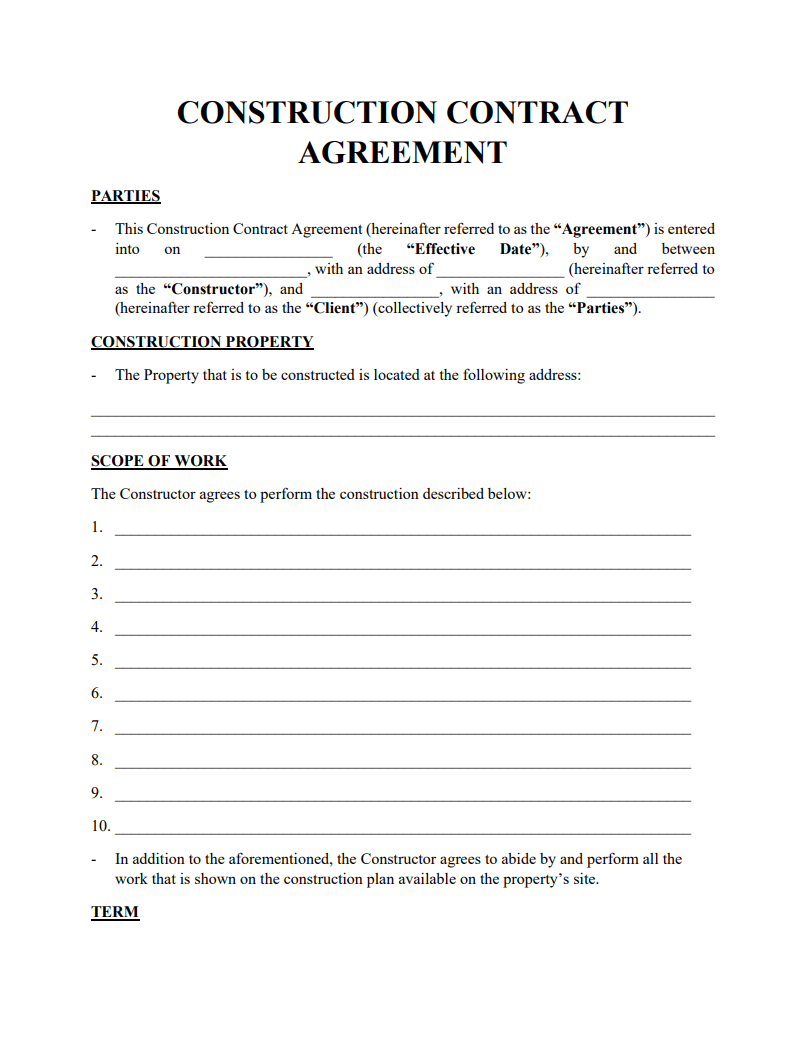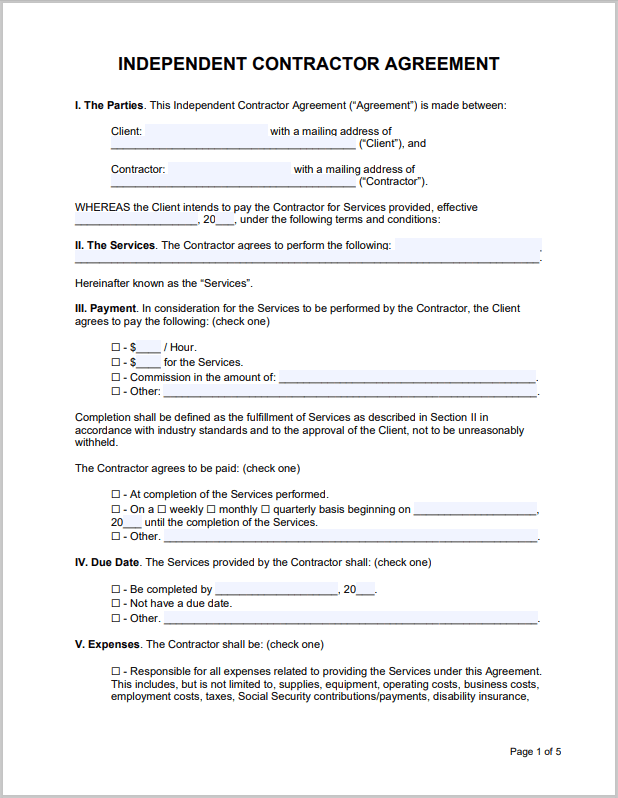Introduction
No business operation should hire workers without a written agreement. Verbal agreements can be ambiguous and could lead to unpleasant disputes in the future. As an employer of labor, you need to spell out your terms and conditions of employment. Your employees need to know their resumption and closing time. They need to know their duties, obligations, and targets. Your employees also need to be informed of their remuneration as well as fringe benefits.
Many more are captured in a legally binding agreement document known as an employment contract. Our employment contract sample here provides you with a concise template that you can use when hiring your workforce. This guide explains what this template is all about in more detail while also highlighting the benefits, elements, and best practices for employment contracts.
What is an employment contract?
An employment contract is simply an agreement (in writing) between two parties, an employer of labor and an employee. This agreement spells out the terms and conditions of employment, including both parties' duties and responsibilities.
It provides details of the employee's obligations and tasks that they must achieve in exchange for a wage, salary, or commission. An employment contract is a legally binding document that both parties can use as a point of reference when settling disputes in a legal proceeding. A typical employment contract sample will contain key details of the employment, including:
- Working hours,
- Required conduct,
- Duties and responsibilities,
- Income (daily, weekly or monthly),
- Employment benefits and so on.
An employment contract protects both parties to the employment agreement. As an employer of labor, you can terminate the services of an employee if the employee fails to live up to the terms of employment as contained in the employment contract.
You can terminate the employee's employment without fear of legal recourse as you have the employment agreement as your point of reference.
Also, an employee can seek legal counsel if you fail to honor the employment contract terms as an employer. For example, if you fail to provide the agreed remuneration or benefits stated in the contract.
Why is an employment contract important? / Benefits of employment contracts
An employment contract is beneficial and important for the following reasons:
- It defines the relationship between the emperor and the employee.
- It clearly states the roles, duties, obligations, and responsibilities of the employer and employee in unequivocal terms.
- It provides information about the income and employment benefits due to the employee.
- It states the work hours, conditions for mandatory leave, and other forms of days off work.
- An employment contract is important as it legally binds the employer to the employee and vice-versa. Therefore, an employment contract is admissible in court in pursuit of legal proceedings for breaches of the contract by either party.
- The employment contract serves as a reference point for mediation, arbitration, and any other means of settling disputes.
The important elements of an effective employment contract
An employment contract templateshould typically contain the following four elements to make it legally binding to the parties concerned:
#1. Terms and Conditions of Employment: This Includes the duties, roles, responsibilities, and obligations of both the employee and employer. All parties should clearly understand their roles in the employment contract and their responsibilities toward the business entity's success.
#2. Remuneration: The contract should state the salary structure and the compensation income available to your employees for work done.
#3: Other Employment Benefits: Your employment contract should also state other benefits and perks in addition to the income you intend to pay an employee. These benefits may include:
- Insurance,
- Pension, and
- Leave/ time off information.
#4: Location of Work and expected Work Hours: Your employment contract will provide information about employment location. It should also state the weekly working hours expected from the employee. You may also include other details for clarity, such as the time for lunch breaks.
#5: Conditions for Termination of Employment: A standard employment contract template should provide the conditions for termination of employment. It should also provide information on the resignation process, including the required notice period expected from employees wishing to resign from their appointment.
Best practices for employment contracts
Every employer is responsible for ensuring that they adhere to the best possible practices for employment contracts. Some of these best practices include the following:
- Employers need to state the company policies in a way that all employees can understand and adhere to.
- Employers should provide a detailed outline of employees' roles, duties, and responsibilities.
- The contract should clearly indicate the income and other work benefits and entitlements. The employment contract should clearly state information like health insurance and pension.
- The terms and conditions of employment, including the workplace rules and regulations, should be indicated in the contract.
- Information on the process of dispute resolution within the workplace should be stated.
FAQ
Q1: What should an employment contract be used for?
A1: As an employer of labor, you should use an employment contract anytime you intend to employ workers.
Q2: Why is it important to use an employment contract in hiring workers?
A2: An employment contract is a legally binding document that protects the employer from employee litigation if they do not breach the terms and conditions indicated in the contract. Also, the contract provides unequivocal information relating to the roles, duties, responsibilities, remuneration, and other relevant details of the employee.
Q3: Can the employee terminate an employment contract?
A3: Yes. An employee can terminate an employment contract. However, the employee may be required to give a notice of termination within the notice period indicated in terms of the employment contract.
Q4: Can I amend the employment contract template?
A4: Yes. Our editable employment contract sample is available in MS Word format and you can make adjustments to the template to meet the requirements of your business. However, we recommend that you consult a lawyer to ensure that your amendment meets relevant local labor laws.




